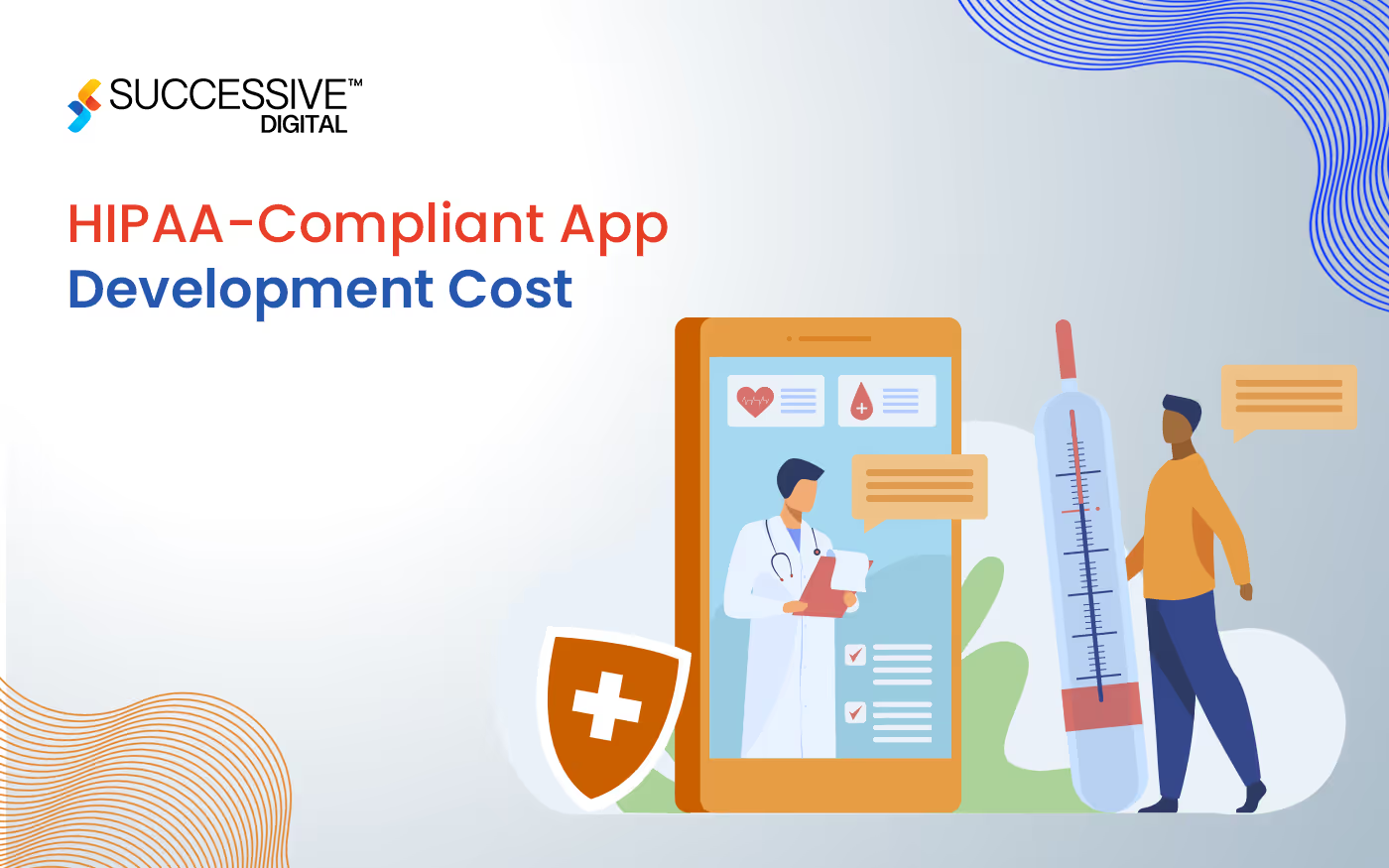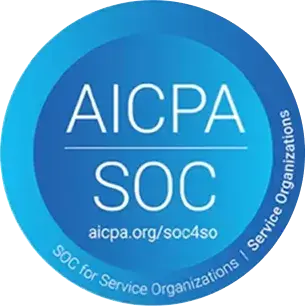Do you know the healthcare industry in the United States has been dealing with an alarming rate of data breaches? In fact, it was reported that 8.8 million health records were compromised in January 2024 alone. As a result, healthcare applications that are compliant with industry-relevant regulations like HIPAA are a must. It is now mandatory for platforms handling sensitive health information, including those used in the management of medical supplies, to be HIPAA-compliant.If you plan to develop a HIPAA-compliant platform for medical supplies, this article will guide you through the overall costs involved in creating such software or an app. We'll explore the various factors that influence the HIPAA compliance cost, as well as the key considerations necessary for ensuring compliance in a medical supplies delivery platform.
Factors Affecting the Cost of HIPAA Compliance Platform Development
HIPAA Compliance: Core Cost Factors
Medical Software Functionality Scope
The scope of the medical software's functionality determines the cost of HIPAA compliance. It encompasses the range and depth of features the platform must support to meet regulatory requirements and deliver value to users. The scope can involve the following factors:
- Inventory management
- Order processing
- Patient data integration
- Compliance tracking
Note: By carefully defining the functionality scope in alignment with your business objectives and compliance needs, you can manage your HIPAA compliance audit cost-effectively.
Platform Development and Architecture Design
Developing a HIPAA compliant platform requires conceptualizing and designing a robust architecture that allow you to securely handle PHI. Setting up a secure and compliant-friendly infrastructure requires database design, server configuration, and network architecture, which can range from $50,000 to $200,000, depending on the platform’s complexity.
Security Measures and Encryption
Security is a primary factor to consider when dealing with PHI. And implementing advanced security measures to protect data from breaches and unauthorized access is a significant cost driver, which includes:
- Mandatory data encryption under HIPAA
- Implementing enterprise-grade firewalls
- Integrating intrusion detection systems
- Multi-factor authentication
- Secure communication protocols
Number and Complexity of Features
The number and complexity of features directly impact the development time and resources required, making them significant factors in the overall cost. There are features that add substantial complexity and cost to the platform, as they must be meticulously designed, developed, and tested to ensure it meets stringent HIPAA requirements, such as:
- Real-time data analytics
- Advanced search capabilities
- Automated compliance checks
- Secure communication channels
User Authentication and Access Control
Another crucial aspect of HIPAA compliance cost is managing user access to sensitive data. The cost involved in ensuring only authorized personnel have access to PHI can involve:
- Implementing user authentication systems, such as OAuth or SAML
- Developing and maintaining role-based access control mechanisms.
HIPAA Compliance: Integration Cost Factors
Integration with Existing Systems
In order to build a HIPAA-compliant platform, you need to ensure that it is seamlessly and securely integrated with healthcare systems, such as EHR, ERP systems, or other third-party applications. Take care of the following factors in order to establish a smooth data flow and interoperability between the platform and existing systems:
- Developing custom APIs
- Implementing middleware solutions
- Accurate data mapping and transformation
Compliance with Industry Standards
Beyond HIPAA, the platform must comply with other relevant industry standards, such as:
- Fast Healthcare Interoperability Resources (FHIR)
- Health Level Seven (HL7) standards.
- General Data Protection Regulation (GDPR)
- Health Information Trust Alliance (HITRUST)
Ensuring compliance with these standards during integration is essential with rigorous testing and validation, and in turn, it will add to the cost.
Data Migration
Migrating existing data from legacy systems to the new platform while ensuring its integrity and security is a critical and often underestimated task. The data migration process must adhere to HIPAA guidelines, ensuring that no PHI is compromised during the transfer.The process given below can be part of the HIPAA compliance audit cost:
- Data extraction and transformation
- Data validation
- De-identification of data
HIPAA Compliance: Operational Cost Factors
Ongoing Compliance Monitoring
Since maintaining HIPAA compliance is an ongoing responsibility, you need to set aside HIPAA compliance cost for balancing the support and maintenance of the healthcare platform. The following factors can add to this HIPAA compliance audit cost:
- Continuous monitoring
- Regular audits and updates
- Implementing tools to monitor the platform’s compliance
- Employee training program cost estimation
License Fees
To find out the HIPAA compliance cost, your platform must integrate various software components and services, many of which require licensing, including:
- Specialized encryption tools
- Secure communication protocols
- Compliance management software
Additionally, if your platform relies on third-party cloud services or APIs, you may need to account for ongoing subscription fees or licensing costs associated with those services. Proper budgeting for these licenses is crucial to avoid unexpected costs down the road and to ensure that your platform remains compliant over time.
Maintenance and Updates
Like any software platform, a HIPAA-compliant system requires regular maintenance and updates.This includes the following factors that add to the cost:
- Applying security patches
- Updating software to remain compliant with new regulations
- Enhancing platform features
- Engaging a third-party provider
- Regular updates to ensure continued compliance
- Improving platform functionality
- Investing in scalability enhancements
Support and Helpdesk Services
Providing users with reliable support and helpdesk services to your customers is essential for maintaining the platform’s usability. Also, it is helpful in providing quick resolution of any issues that may arise. However, setting up and maintaining a support team to handle user inquiries and technical issues can add to the HIPAA compliance cost.
Data Backup and Disaster Recovery
HIPAA-compliant app development requires a strategic disaster recovery plan. This ensures that PHI remains secure and accessible, even in the event of a system failure, which in turn, affect the cost of HIPAA compliance.
Estimating HIPAA Compliance Audit Cost Based on Various Factors
Your Organization Type
The type of organization can affect audit costs. Different types of organizations may have varying levels of complexity in their operations and data handling, which can impact the scope and depth of the audit required.
- Healthcare Providers: Typically require extensive audits due to the large volume of PHI they handle.
- Insurers: May face audits that focus on data management and security practices.
- Business Associates: Often undergo audits to ensure compliance in managing PHI on behalf of other entities.
Your Organization’s Culture
An organization’s culture, including its commitment to compliance and internal practices, can impact audit costs. A culture that prioritizes compliance and has well-established procedures may face fewer issues during audits.
- Compliance-Focused Culture: May lead to smoother audits and potentially lower costs due to fewer findings.
- Less Mature Culture: May result in higher costs due to potential non-compliance issues and the need for more extensive remediation.
Your Organization’s Environment
The operational environment, including the technology and infrastructure used, can affect HIPAA compliance audit costs. Organizations with complex IT environments or outdated systems may face higher costs due to the increased effort required to assess compliance.
- Modern, Well-Managed Environments: Likely result in lower audit costs due to better alignment with compliance requirements.
- Complex or Outdated Environments: May lead to higher costs due to the need for more extensive assessments and remediation.
Your Organization’s Dedicated HIPAA Workforce
The presence of a dedicated HIPAA compliance team can influence audit costs. Organizations with a specialized team dedicated to managing compliance are likely to have better preparation and fewer compliance issues, potentially leading to lower audit costs. Without a dedicated team, organizations may face higher costs due to additional effort needed to address compliance gaps.
How Much Does HIPAA Compliance Cost?
As mentioned earlier, the overall complexity of the software is a key factor influencing the cost of HIPAA compliance. Simply put, a more complex medical supplies delivery platform with a comprehensive set of features will incur higher costs compared to a simpler solution with only basic functionality.Below is a rough cost estimate for building a HIPAA-compliant platform for medical delivery, depending on the software’s complexity.Software ComplexityEstimated Cost of DevelopmentTime FrameHighly Complex$120,000 to $250,00010 to 12 monthsMedium Complex$90,000 to $120,0006 to 8 monthsSimple$60,000 to $90,0003 to 6 months
Successive Digital Ensures HIPAA Compliance for Healthcare Platforms
In conclusion, the cost of developing a HIPAA-compliant medical supplies platform can range from $45,000 to $200,000. In today’s rapidly evolving healthcare industry, strict adherence to HIPAA regulations is essential. Companies that prioritize compliance with these regulations are better positioned for success in a competitive market, as they demonstrate a strong commitment to protecting patient privacy and data security.Successive Digital is a leading provider of healthcare software development services compliant with HIPAA using extensive experience in the field. Our deep industry expertise allows us to create secure delivery software for medical supplies that meets all HIPAA requirements.Our cloud-managed services team is dedicated to rigorous testing and quality assurance to ensure your HIPAA-compliant healthcare delivery platform is fully functional, secure, and compliant. Successive Digital’s advanced technological capabilities make us the ideal partner for your healthcare project.Contact our team today to develop a HIPAA-compliant platform for the healthcare supply chain with efficiency and precision.
.avif)

.webp)




.avif)



.jpg)









